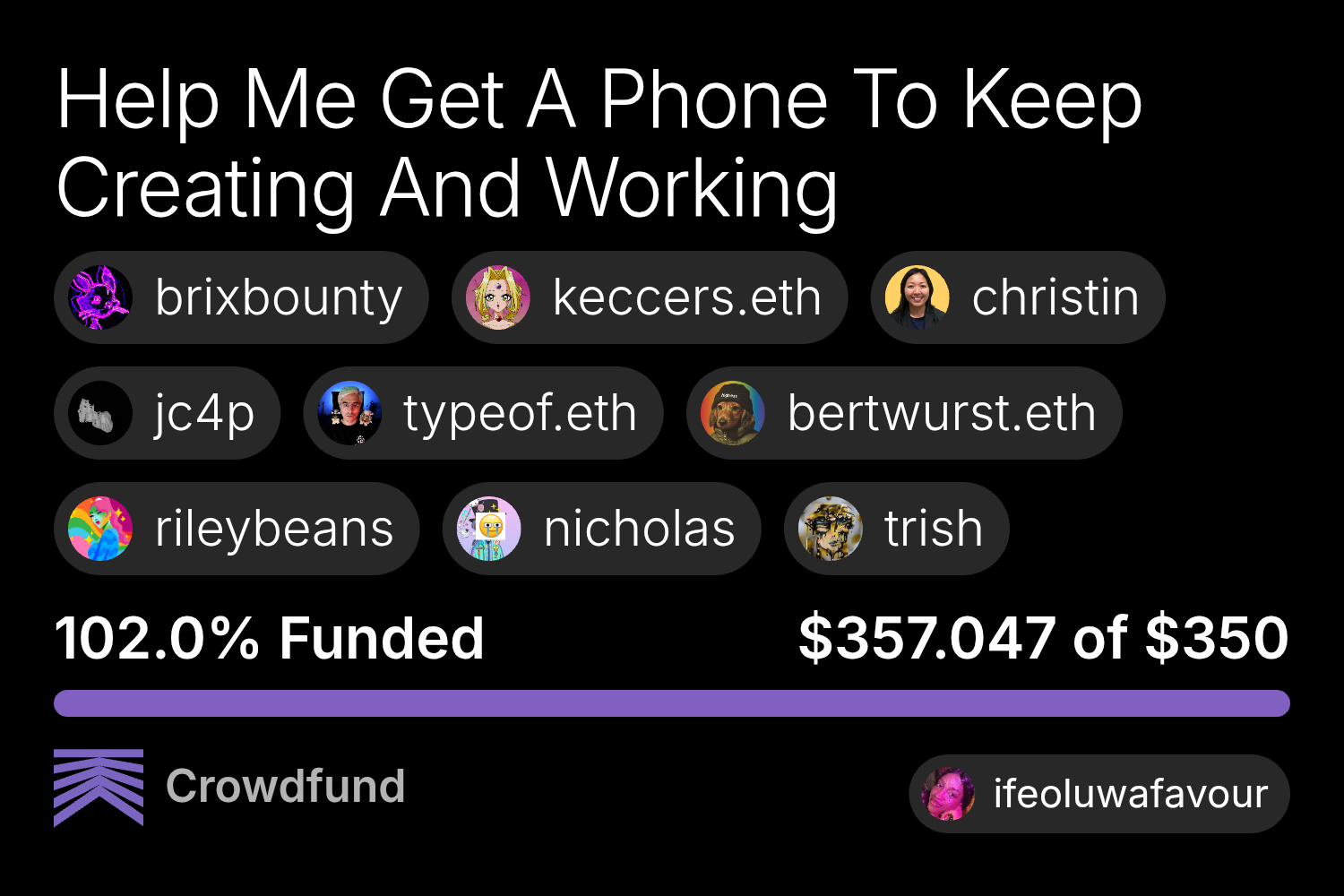861700
Kent Babin
@kentb #861700
/allthingsfiction. Accidental Intrigue podcast (https://accidentalintrigue.com). Furtive Khan novels (https://www.amazon.com/dp/B08CB6H3SH). @carboncopy-refi.
870 Follower 89 Following
"If novelists can learn how filmmakers utilize particular camera shots to achieve specific effects, create specific moods, and evoke specific emotions, they have a powerful tool at hand."
Great perspective on how to show, not tell.
https://www.livewritethrive.com/2025/04/03/the-best-way-to-show-dont-tell-scene-segmenting/?inf_contact_key=ae45938d25b65253aca653c05c6cd40b680f8914173f9191b1c0223e68310bb1
Great perspective on how to show, not tell.
https://www.livewritethrive.com/2025/04/03/the-best-way-to-show-dont-tell-scene-segmenting/?inf_contact_key=ae45938d25b65253aca653c05c6cd40b680f8914173f9191b1c0223e68310bb1
First attempt at @zora. From S2 E1 of the Accidental Intrigue audio drama.
Crime lord Benedict Goh (Singaporean-Chinese) and his consigliere Noah (British) discussing the potential of crypto in 2019.
@jpfraneto.eth @tokenizedhuman What do you think of this format?
https://zora.co/coin/base:0x7c651a6cd1ce2f87655f011488d7b395f12d61a0?referrer=0xAe9e4e5e911EbC05c2f6d3644FF895934EbED410
Crime lord Benedict Goh (Singaporean-Chinese) and his consigliere Noah (British) discussing the potential of crypto in 2019.
@jpfraneto.eth @tokenizedhuman What do you think of this format?
https://zora.co/coin/base:0x7c651a6cd1ce2f87655f011488d7b395f12d61a0?referrer=0xAe9e4e5e911EbC05c2f6d3644FF895934EbED410
Five chapters of narration complete and there is one feature that would make the process a lot better:
The ability to provide semantic instructions to the virtual voice on how to read a particular piece of text, say dialogue.
Startled, surprised, angry, for example, or even something more granular like "Said in the same way a person who just receives bad news on a great day".
Even better if it would allow you to select the voice that reads the text.
One thing this would do is eliminate the need for dialogue tags, which really aren't necessary in audio books if narrated correctly.
The ability to provide semantic instructions to the virtual voice on how to read a particular piece of text, say dialogue.
Startled, surprised, angry, for example, or even something more granular like "Said in the same way a person who just receives bad news on a great day".
Even better if it would allow you to select the voice that reads the text.
One thing this would do is eliminate the need for dialogue tags, which really aren't necessary in audio books if narrated correctly.
861700
Kent Babin
@kentb·10:46 21/04/2025
A few chapters in now. I remember getting a piece of sage writing advice a number of years ago:
Read your writing aloud. It's the only way you'll come close to understanding how it sounds in a reader's head.
I never ended up doing it, but now I see why it's important and can be so helpful.
It's a lot easier to judge pacing, flow, and transitions when you hear it. The parts that don't work sound like a wrong note was played in a familiar song.
Read your writing aloud. It's the only way you'll come close to understanding how it sounds in a reader's head.
I never ended up doing it, but now I see why it's important and can be so helpful.
It's a lot easier to judge pacing, flow, and transitions when you hear it. The parts that don't work sound like a wrong note was played in a familiar song.
A few chapters in now. I remember getting a piece of sage writing advice a number of years ago:
Read your writing aloud. It's the only way you'll come close to understanding how it sounds in a reader's head.
I never ended up doing it, but now I see why it's important and can be so helpful.
It's a lot easier to judge pacing, flow, and transitions when you hear it. The parts that don't work sound like a wrong note was played in a familiar song.
Read your writing aloud. It's the only way you'll come close to understanding how it sounds in a reader's head.
I never ended up doing it, but now I see why it's important and can be so helpful.
It's a lot easier to judge pacing, flow, and transitions when you hear it. The parts that don't work sound like a wrong note was played in a familiar song.
861700
Kent Babin
@kentb·05:24 18/04/2025
Trying out Amazon's virtual voice feature for producing audio books.
- Choose between American, British, Australian, and American South accents.
- Each chapter can have its own voice.
- You get a decent level of granular control over pronunciation, pauses, and voice speed.
- It will take quite a while to go through the entire book and set all the pauses correctly.
The obvious drawback so far is that you don't have much control over intonation and inflection. You can't make character sound more excited or sinister, for example.
Combine that with expanding the vocal library and specifying a voice for individual dialogue lines and you have quite a powerful tool.
A new audiobook director/producer role will be needed to help writers get the most out of it.
- Choose between American, British, Australian, and American South accents.
- Each chapter can have its own voice.
- You get a decent level of granular control over pronunciation, pauses, and voice speed.
- It will take quite a while to go through the entire book and set all the pauses correctly.
The obvious drawback so far is that you don't have much control over intonation and inflection. You can't make character sound more excited or sinister, for example.
Combine that with expanding the vocal library and specifying a voice for individual dialogue lines and you have quite a powerful tool.
A new audiobook director/producer role will be needed to help writers get the most out of it.
This has to be one of the best accounts on here right now. Epic journey.
Reminds of a trip some friends and I made in a 1980 Zhiguli 011 from Azerbaijan to Croatia in 2011.
Reminds of a trip some friends and I made in a 1980 Zhiguli 011 from Azerbaijan to Croatia in 2011.
1049756
Kris Roos
@krisr·16:29 20/04/2025
🚨NEW UPGRADE🚨
Mauritania has few fuel stations and sometimes are even out of fuel so I’m increasing the range to 750 KMs!
Got help from the best local guys in Tarfaya to weld together this rack to hold 10 additional liters of fuel 😍
Mauritania has few fuel stations and sometimes are even out of fuel so I’m increasing the range to 750 KMs!
Got help from the best local guys in Tarfaya to weld together this rack to hold 10 additional liters of fuel 😍
Trying out Amazon's virtual voice feature for producing audio books.
- Choose between American, British, Australian, and American South accents.
- Each chapter can have its own voice.
- You get a decent level of granular control over pronunciation, pauses, and voice speed.
- It will take quite a while to go through the entire book and set all the pauses correctly.
The obvious drawback so far is that you don't have much control over intonation and inflection. You can't make character sound more excited or sinister, for example.
Combine that with expanding the vocal library and specifying a voice for individual dialogue lines and you have quite a powerful tool.
A new audiobook director/producer role will be needed to help writers get the most out of it.
- Choose between American, British, Australian, and American South accents.
- Each chapter can have its own voice.
- You get a decent level of granular control over pronunciation, pauses, and voice speed.
- It will take quite a while to go through the entire book and set all the pauses correctly.
The obvious drawback so far is that you don't have much control over intonation and inflection. You can't make character sound more excited or sinister, for example.
Combine that with expanding the vocal library and specifying a voice for individual dialogue lines and you have quite a powerful tool.
A new audiobook director/producer role will be needed to help writers get the most out of it.
For Season 2, we decided to do something a bit different.
First, we wanted to make it more like an audio drama and less like an audio book. In other words, a TV series without video.
Second, @culturevulture joined the crew and brought production skills that allowed us to add a sound engineering component.
For the story, it had to be about crypto. There are too many epic stories in the space waiting to be told, so I chose one I was familiar with.
Set in 2019 in Southeast Asia, it's a story about drug traffickers and freedom fighters using bitcoin to launder their money.
The characters:
🇦🇺 Cicero - An Aussie crypto bro CEO
🇦🇹 Max - An Austrian crypto CTO
🇸🇬 Benedict - Singaporean-Chinese crime lord
🇬🇧 Noah - Benedict's consigliere
🇮🇪 Seamus - Masquerading tourist
🇲🇩 Valeria - Moldovan journalist
🇲🇲 Nang - Shan State rebel leader
Not as much travel in this one, but plenty of intrigue!
Listen to episode 1 here 👇
First, we wanted to make it more like an audio drama and less like an audio book. In other words, a TV series without video.
Second, @culturevulture joined the crew and brought production skills that allowed us to add a sound engineering component.
For the story, it had to be about crypto. There are too many epic stories in the space waiting to be told, so I chose one I was familiar with.
Set in 2019 in Southeast Asia, it's a story about drug traffickers and freedom fighters using bitcoin to launder their money.
The characters:
🇦🇺 Cicero - An Aussie crypto bro CEO
🇦🇹 Max - An Austrian crypto CTO
🇸🇬 Benedict - Singaporean-Chinese crime lord
🇬🇧 Noah - Benedict's consigliere
🇮🇪 Seamus - Masquerading tourist
🇲🇩 Valeria - Moldovan journalist
🇲🇲 Nang - Shan State rebel leader
Not as much travel in this one, but plenty of intrigue!
Listen to episode 1 here 👇
Season 1 takes place in Uzbekistan, Tajikistan, and Kyrgyzstan - three countries in which I've been fortunate enough to spend some time.
Set in 2012, it follows four main characters:
🇿🇦 Gerhardt (Gerry) - A South African industrial espionage agent
🇩🇪 Hans - A German hydroelectric engineer
🇺🇿 Colonel Ivanov - An Uzbek state security service colonel
🇹🇯 Amir - A Tajik oligarch
It's part travelogue, part espionage. But that's not all.
Karakalpakstani independence? ✅
Rogun dam? ✅
Aral Sea? ✅
Duplicitous German BND agents? ✅
Saunas and vodka? ✅
Bazaars? ✅
Listen to episode 1 👇
https://open.spotify.com/episode/1dN39VgYJaxuO8dNcmG8CM?si=o6ZsXg1aSsq9CTgoUyNsxA&context=spotify%3Ashow%3A3fd6ggUc18Kg8tn2otjBiN
Set in 2012, it follows four main characters:
🇿🇦 Gerhardt (Gerry) - A South African industrial espionage agent
🇩🇪 Hans - A German hydroelectric engineer
🇺🇿 Colonel Ivanov - An Uzbek state security service colonel
🇹🇯 Amir - A Tajik oligarch
It's part travelogue, part espionage. But that's not all.
Karakalpakstani independence? ✅
Rogun dam? ✅
Aral Sea? ✅
Duplicitous German BND agents? ✅
Saunas and vodka? ✅
Bazaars? ✅
Listen to episode 1 👇
https://open.spotify.com/episode/1dN39VgYJaxuO8dNcmG8CM?si=o6ZsXg1aSsq9CTgoUyNsxA&context=spotify%3Ashow%3A3fd6ggUc18Kg8tn2otjBiN
861700
Kent Babin
@kentb·08:03 16/04/2025
Three years ago, after making it about 80% of the way through my third novel, I decided to shift gears to a different kind of fiction project. Novels take a long time and I needed something with a quicker turnaround time.
That project became an audio drama podcast called Accidental Intrigue.
Season 1 - an espionage thriller set in Central Asia - was such a blast to make that we decided to follow it up with a second season.
Today, I hit publish on the final two episodes of Season 2 - a crypto thriller set in Southeast Asia during the heady days of 2019.
Special shout out to @culturevulture (whom I'll officially introduce in another post) for his superb voice acting and production skills in Season 2. You only have to compare the production quality of the two seasons to understand what a difference it makes having someone who knows what they're doing.
If you like fiction and podcasts and crypto, this might be for you!
https://creators.spotify.com/pod/profile/accidental-intrigue/
That project became an audio drama podcast called Accidental Intrigue.
Season 1 - an espionage thriller set in Central Asia - was such a blast to make that we decided to follow it up with a second season.
Today, I hit publish on the final two episodes of Season 2 - a crypto thriller set in Southeast Asia during the heady days of 2019.
Special shout out to @culturevulture (whom I'll officially introduce in another post) for his superb voice acting and production skills in Season 2. You only have to compare the production quality of the two seasons to understand what a difference it makes having someone who knows what they're doing.
If you like fiction and podcasts and crypto, this might be for you!
https://creators.spotify.com/pod/profile/accidental-intrigue/

S1 E1: A South African in Uzbekistan (Part 1)
Accidental Intrigue · Episode
open.spotify.com
We're down to crunchtime in @gitcoin GG23! @carboncopy-refi can use every ounce of support in our mission to help on-chain projects make off-chain impact. 🙏
738009
CARBON Copy
@carboncopy-refi·14:18 16/04/2025
We're down to the final hours of @gitcoin GG23! We'd really appreciate your support in one of the following rounds:
1) dApps and Apps on @arbitrum - explorer.gitcoin.co#/round/42161...
Proceeds from this round will go to connecting more sources to our ReFi Impact Dashboard and publishing an Web3 tooling educational series in partnership with @greenpillnetwork Writers Guild!
2) Regen Coordination Global on @celo - explorer.gitcoin.co#/round/42220...
This round will help us pursue collaboration opportunities with great orgs such as @refidao @greenpillnetwork @maearth and others! We have some exciting things planned including Local ReFi Toolkit Playbooks and an ergodic ecosystem investment pilot!
1) dApps and Apps on @arbitrum - explorer.gitcoin.co#/round/42161...
Proceeds from this round will go to connecting more sources to our ReFi Impact Dashboard and publishing an Web3 tooling educational series in partnership with @greenpillnetwork Writers Guild!
2) Regen Coordination Global on @celo - explorer.gitcoin.co#/round/42220...
This round will help us pursue collaboration opportunities with great orgs such as @refidao @greenpillnetwork @maearth and others! We have some exciting things planned including Local ReFi Toolkit Playbooks and an ergodic ecosystem investment pilot!
Three years ago, after making it about 80% of the way through my third novel, I decided to shift gears to a different kind of fiction project. Novels take a long time and I needed something with a quicker turnaround time.
That project became an audio drama podcast called Accidental Intrigue.
Season 1 - an espionage thriller set in Central Asia - was such a blast to make that we decided to follow it up with a second season.
Today, I hit publish on the final two episodes of Season 2 - a crypto thriller set in Southeast Asia during the heady days of 2019.
Special shout out to @culturevulture (whom I'll officially introduce in another post) for his superb voice acting and production skills in Season 2. You only have to compare the production quality of the two seasons to understand what a difference it makes having someone who knows what they're doing.
If you like fiction and podcasts and crypto, this might be for you!
https://creators.spotify.com/pod/profile/accidental-intrigue/
That project became an audio drama podcast called Accidental Intrigue.
Season 1 - an espionage thriller set in Central Asia - was such a blast to make that we decided to follow it up with a second season.
Today, I hit publish on the final two episodes of Season 2 - a crypto thriller set in Southeast Asia during the heady days of 2019.
Special shout out to @culturevulture (whom I'll officially introduce in another post) for his superb voice acting and production skills in Season 2. You only have to compare the production quality of the two seasons to understand what a difference it makes having someone who knows what they're doing.
If you like fiction and podcasts and crypto, this might be for you!
https://creators.spotify.com/pod/profile/accidental-intrigue/
Only a couple of days left in @gitcoin GG23!
One of the rounds @carboncopy-refi is in is the dApps and Apps round. Aside from using the funds to improve our impact dashboard and dataset, we're really excited about a partnership with @greenpillnetwork Writers Guild to develop and publish Web3 tooling guides for impact projects.
There's a lot of standalone documentation out there, but very little that ties it all together.
If you're feeling generous, like open-source software, and want to see better Web3 tooling documentation, we'd sincerely appreciate the support!
https://explorer.gitcoin.co/#/round/42161/867/128
One of the rounds @carboncopy-refi is in is the dApps and Apps round. Aside from using the funds to improve our impact dashboard and dataset, we're really excited about a partnership with @greenpillnetwork Writers Guild to develop and publish Web3 tooling guides for impact projects.
There's a lot of standalone documentation out there, but very little that ties it all together.
If you're feeling generous, like open-source software, and want to see better Web3 tooling documentation, we'd sincerely appreciate the support!
https://explorer.gitcoin.co/#/round/42161/867/128
Co-authoring is likely the way forward for the relationship between fiction writers and AI. You get to establish your voice and the AI does the things that offer you the most resistance while providing an editor's polish.
Thanks, @vgr, for including your process in the post!
Thanks, @vgr, for including your process in the post!
4606
Venkatesh Rao ☀️
@vgr·21:02 11/04/2025
I’m really pleased with how this experiment with AI-coauthored fiction worked out. I worked with chatgpt to transpose the idea of a classic Lovecraft story to a different key and theme and it worked unexpectedly well. I enjoyed the story so much I reread it a few times myself just for pleasure, something I rarely do with my unassisted stuff. You can enjoy it without having read the original but if you have it is even more fun. https://protocolized.summerofprotocols.com/p/the-signal-under-innsmouth
Some great climate projects in Epoch 7! Be sure to allocate if you're a GLM staker!
Loading...
Just finished The Residence on Netflix.
Really well done. Perhaps dragged out a bit, but delightfully quirky. Favourite random bit was the calligrapher who happened to have an off night. 😂
Really well done. Perhaps dragged out a bit, but delightfully quirky. Favourite random bit was the calligrapher who happened to have an off night. 😂
7237
Thomas
@aviationdoctor.eth·04:58 18/02/2025
Update: I've now seen the video of the landing taken from a security camera. The aircraft didn't flare / pitch up and just kept descending with a level attitude into the ground at an excessive vertical speed. It was also not banking, so it looks like we can rule out a wingtip touching the ground first.
So, it was presumably a very hard landing that caused gear collapse and wing separation on one side, and then rolling over due to the asymmetry of the other wing still being attached and generating lift.
My bet is on sudden windshear just before the flare causing the aircraft to slam into the ground. The weather looked terrible in YYZ.
Windshear at landing is really the one edge case that we can't do much about safety-wise. As much as we have windshear detectors on the ground and on the aircraft, if it happens at that exact sweet spot just before the flare, there isn't enough time to spool up the engines and go around.
At least in those rare occasions, the height is so little that the accident is survivable
So, it was presumably a very hard landing that caused gear collapse and wing separation on one side, and then rolling over due to the asymmetry of the other wing still being attached and generating lift.
My bet is on sudden windshear just before the flare causing the aircraft to slam into the ground. The weather looked terrible in YYZ.
Windshear at landing is really the one edge case that we can't do much about safety-wise. As much as we have windshear detectors on the ground and on the aircraft, if it happens at that exact sweet spot just before the flare, there isn't enough time to spool up the engines and go around.
At least in those rare occasions, the height is so little that the accident is survivable
2653
Simon de la Rouviere
@simondlr·15:02 16/02/2025
A shorter newsletter this week. Exoplanets, Protocolized Fiction, and Weirder Fantasy Maps. Enjoy!
https://sceneswithsimon.com/p/exoplanets-protocolized-fiction-and
https://sceneswithsimon.com/p/exoplanets-protocolized-fiction-and
For the Mavs, the trade is about looking at a future dominated by Wemby and saying, "Luka, as good as he is, ain't it."
Finished Squid Game S2 last night. At the beginning of E7 (last of this season), I was like "No way they're wrapping this up in a 59-minute episode."
Low and behold...
Low and behold...
4256
Mark Fishman
@mark·04:54 27/01/2025
Did they not release the last few episodes of Squid Game S2? Or does it just actually end like that
2494
7858
@7858.eth·11:53 17/01/2025
Day 17: The Jungle Book
A series of fable-ish stories mostly populated by animal characters, including a bunch that don’t star Mowgli.
The Mowgli stories are the best known for good reason. The Rikki-Tikki-Tavi story is the second strongest. The rest are good but not noteworthy.
My 6yo and I both had a pretty tepid reaction to it. If you’re out of content to read with your kids, go for it. But here are some alternatives I’d recommend more strongly:
Better orphan story: The Graveyard Book
Better animal story: Watership Down
Better adventure: Treasure Island
Better Kipling: Captains Courageous
Four stars carried on Mowgli’s little man cub back
A series of fable-ish stories mostly populated by animal characters, including a bunch that don’t star Mowgli.
The Mowgli stories are the best known for good reason. The Rikki-Tikki-Tavi story is the second strongest. The rest are good but not noteworthy.
My 6yo and I both had a pretty tepid reaction to it. If you’re out of content to read with your kids, go for it. But here are some alternatives I’d recommend more strongly:
Better orphan story: The Graveyard Book
Better animal story: Watership Down
Better adventure: Treasure Island
Better Kipling: Captains Courageous
Four stars carried on Mowgli’s little man cub back
Started on Squid Game 2. Ten minutes into the first episode, it struck me that the existence of the police officer and his desire to find the island means the second season doesn't have to rely on the "games where people die" premise that so shocked us in the first season.
I can already sense the imminent showdown and am looking forward to see how it unfolds.
Good technique for fiction writers out there!
I can already sense the imminent showdown and am looking forward to see how it unfolds.
Good technique for fiction writers out there!
Happy New Year, everyone!
Here's to a 2025 of great fiction. 📖 🎞️ 📻
Here's to a 2025 of great fiction. 📖 🎞️ 📻
Finished Black Doves last weekend.
Enjoyed it, but still prefer the pace and irreverence of Slow Horses if pushed. I think that's because modern spy thrillers are hard. It's too easy to fall back on the tech.
Black Doves felt more like a Kill Bill style action thriller. Fantastical, indeed, as @tokenizedhuman points out, but also whimsical. You never really think that the fate of the world is on anyone's shoulders. It's very much a series of personal redemption arcs rolled into a story.
This makes me think we're in for a longer series. Those character arcs need time to play out.
Now watching The Madness. Anything but whimsical that one.
Enjoyed it, but still prefer the pace and irreverence of Slow Horses if pushed. I think that's because modern spy thrillers are hard. It's too easy to fall back on the tech.
Black Doves felt more like a Kill Bill style action thriller. Fantastical, indeed, as @tokenizedhuman points out, but also whimsical. You never really think that the fate of the world is on anyone's shoulders. It's very much a series of personal redemption arcs rolled into a story.
This makes me think we're in for a longer series. Those character arcs need time to play out.
Now watching The Madness. Anything but whimsical that one.
Loading...





















